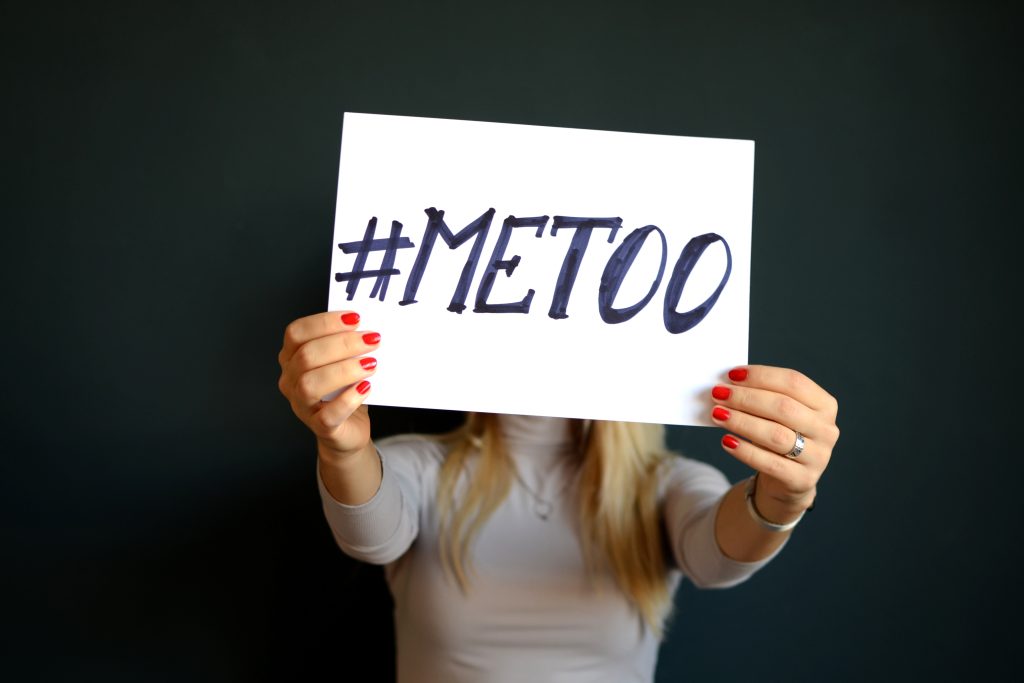
A year after the #MeToo movement the question, ‘Why do people sexually harass people?’ is still ever present and just as complex as when the stories first hit. The movement shed light on sexual harassment in Hollywood – a realm that was formerly perhaps less of a consideration when examining sexual harassment by virtue of being overshadowed by celebrity culture and the ‘open secret’ dimension – and thus provided insight into the abuse of positions of power to coerce sexual relations. As the movement demonstrated, the power dimension of sexual harassment is by no means as unidimensional as it may seem.
The relationship between power and sexual harassment is multi-facetted: lack or absence of power can lead to individuals being sexually aggressive, as can being in a position of power or dominance. A combination of these elements can also trigger sexually aggressive behaviour. For example, a powerless individual exposed to a sudden surge of power.
The first – the notion of using sexual dominance to fill a vacancy of power – is perhaps the easiest to conceive. Psychologist/psychoanalyst Don Greif stated: “[t]he wish to feel powerful is a prime motive for many sexually abusive men […] marginalized, disempowered men […] sometimes coerce sex to feel powerful,” a statement proven to be empirically true. Williams, Gruenfeld and Guillory in their study on sexual aggression reference a general tendency for there to be a higher need for power for men and women who claim to be insecure due to low social status, a characteristic which according to Veroff and Veroff predicts profligate behaviour including sexual misconduct. A study by Krings and Facchin revealed that men that felt they were subject to unfair treatment in the workspace were more likely to claim that they would use their power to exploit sex from subordinates were they in a hypothetical position of power. That powerlessness factors into the desire to harass is also showcased in a study by Kasumovic and Kuznekoff which depicted that in a male-dominated video-game environment, male players who were insecure about their performance and status as players, due to having recently performed poorly, were more likely to send harassing comments to female players.
However, the reverse, being in a position of power and using this power as a weapon to sexually harass others, can equally be a reason for individuals to sexually harass others. Feminist scholars (Brownmiller and Mackinnon for example amongst others) have argued that power plays a large role in sexual aggression. They claim that the aggressors’s desire to dominate is as much a motivating factor in sexual crimes as their sexual desire. MacKinnon in her book “Sexual Harassment of the Working Woman” even goes so far as to say “economic power is to sexual harassment as physical force is to rape” introducing power as a necessary precondition to sexual harassment as Williams, Gruenfeld and Guillory point out. They also reference a selection of papers suggesting that power leads to sexual objectification, a precondition for sexual harassment. Furthermore, Kunstman and Maner observed that having power furthered the belief of men and women interested in casual sex that their subordinates were sexually interested in them, clearly linking power and sexual harassment in the workplace. Professor Ben Voyer also introduces the idea of power and empathy, suggesting that power sedates one’s ability to feel empathy, an emotion whose lack of Greif claims is central to sexual offense: “All sexual offenders suffer from severely compromised capacity to empathize with their victims.” Greif how the notion of power and desert is involved in sexual harassment: “some successful men believe they are entitled to have what they want. When they face limits or rejection they may feel impotent and become indignant in response – and then coerce sex to restore that feeling of power.”
Greif, with this statement, however hints at the perhaps most convincing description of how sexual harassment and men in positions of power link together. Williams, Gruenfeld and Guillory in their study uncover that sexual harassment becomes very likely when those with chronically low power are given high power. The study found that both men and women who found themselves feeling powerless over a long period of time and then suddenly experienced a heightened sense of power were most likely to sexually harass. This led them to extrapolate that perhaps it is those who feel powerless due to, for example, insecurity – not contingent on their actual hierarchical position – who are given the opportunity to wield power are most likely to abuse such power and sexually harass others.
Overall, the relationship between sexual harassment and power is beyond complex and can hardly be covered in 800 words (though this was an attempt), however the breadth of studies conducted to explore this relationship can be a hopeful testament that the intricacies of it will be explored further.
